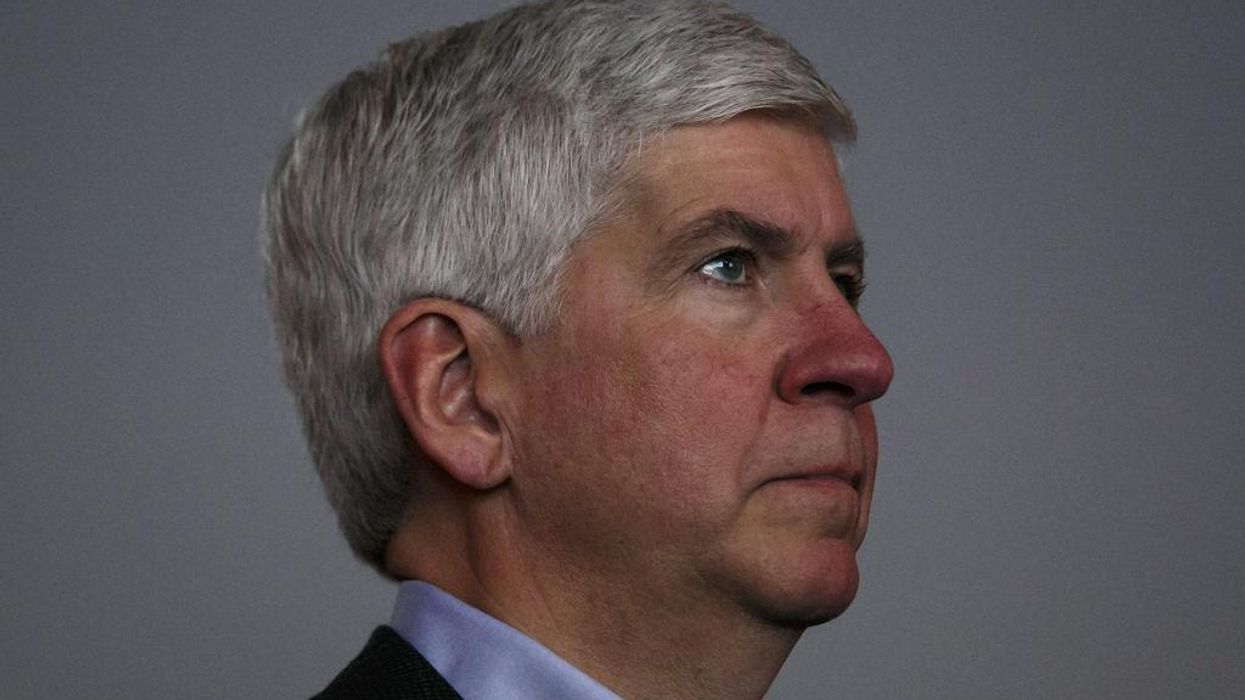
Sean Proctor/Bloomberg via Getty Image

The indictments against former Michigan Governor Rick Snyder and other former members of the state executive branch have been dismissed by the highest court in the state.
In a unanimous decision, the Michigan Supreme Court determined that a one-judge grand jury has no authority "to issue indictments" against government officials or anyone else, except in rare circumstances.
On behalf of the majority, Chief Justice Bridget McCormack wrote that state laws permit judges to act as grand jurors in that judges may "investigate, subpoena witnesses, and issue arrest warrants," but they do not "authorize the judge to issue indictments."
AP reporter Ed White calls this decision "an astonishing defeat for Attorney General Dana Nessel."
Shortly before President Biden took office in 2021, AG Nessel's office announced that charges had been filed against Snyder and eight other officials, including Snyder's former chief of staff Jarrod Agen, former Michigan health director Nick Lyon, and Michigan chief medical officer Eden Wells. All of the charges stemmed from the Flint water crisis, which came to light in 2015. Though Snyder faced two misdemeanor counts of willful neglect of duty, Lyon and Wells were both charged with involuntary manslaughter and would have faced up to 15 years in prison if convicted.
The indictments themselves were a reversal of sorts. When Nessel assumed office in 2019, she immediately dismissed Todd Flood, the special prosecutor assigned by Nessel's predecessor, Bill Schuette, to investigate the crisis, and instead appointed Fadwa Hammoud to the task. Hammoud then paired with Wayne County prosecutor Kym Worthy, and the two appointed Judge David Newblatt of Genesee County, where Flint is located, to be a one-judge grand jury with the power to investigate evidence in secret and issue indictments according to his findings.
The secretive nature of the proceedings and the exploitation of a loophole in Michigan law that permits a one-judge grand jury under rare circumstances led the Michigan Supreme Court to call the process a "Star Chamber comeback," a reference to the sixteenth-century English law enforcement body that often waged attacks against the English sovereign's political adversaries.
While the state supreme court decision applies directly to Nick Lyon, who had filed a legal challenge to the charges made against him, it also applies to all nine who had been charged, including Snyder.
“These prosecutions of Governor Snyder and the other defendants were never about seeking justice for the citizens of Flint,” Snyder's lawyers said. “Rather, Attorney General Nessel and her political appointee Solicitor General Fadwa Hammoud staged a self-interested, vindictive, wasteful and politically motivated prosecution.”